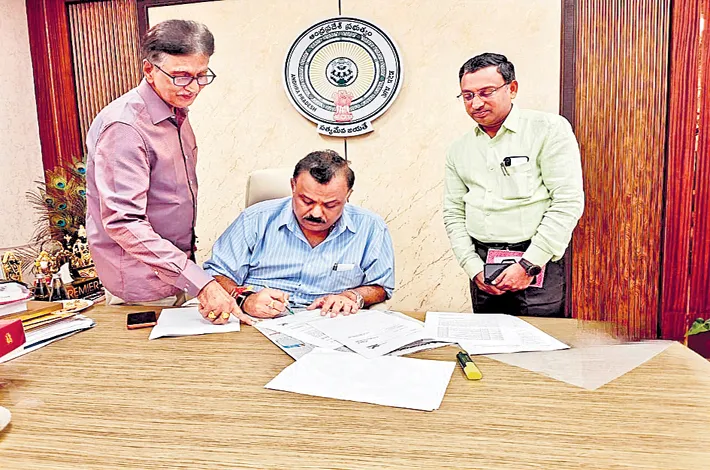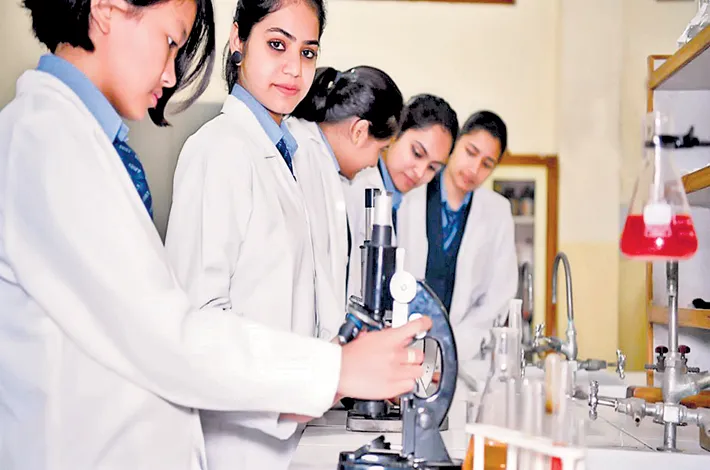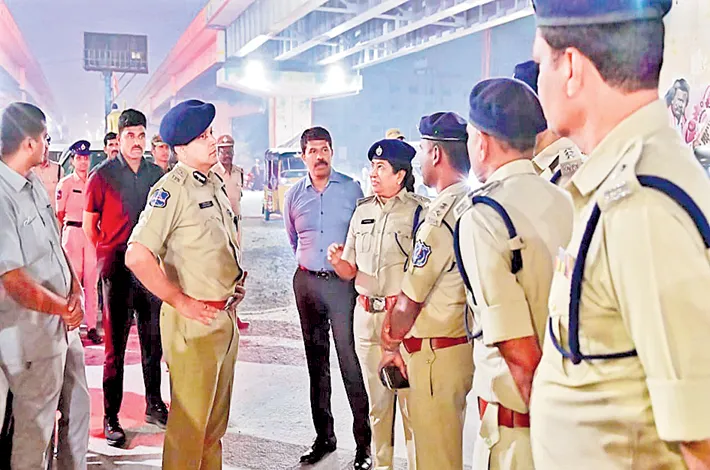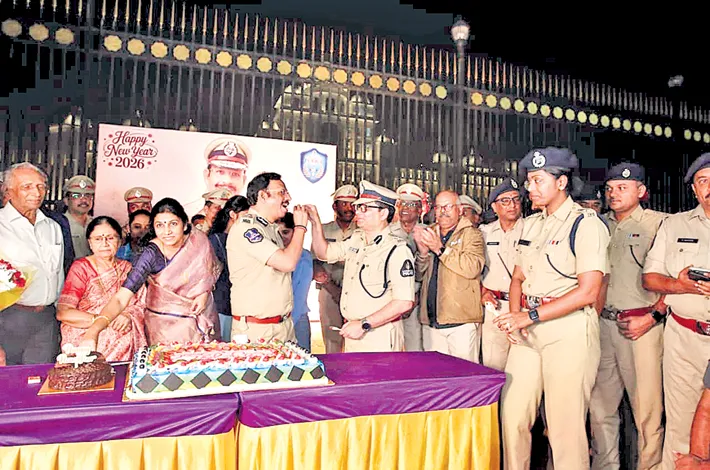Cry, my beloved country!
26-12-2024 01:15:16 AM
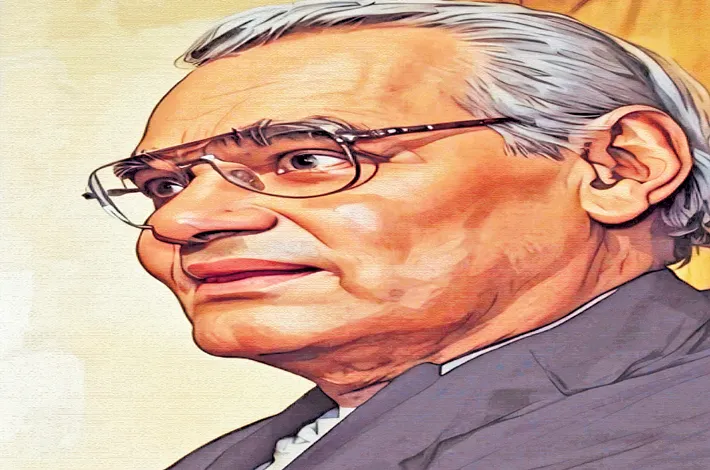
VJM Divakar I hyderabad
Former Prime Minister and statesman Atal Bihari Vajpayee’s birthday was celebrated on Wednesday across the country. Rich tributes were paid to the Vajpayee ji. Let us think for a while, to understand the importance of great leaders like Vajpayee and the high-standard politics that he and his contemporaries played in the past.
Not long ago, political leaders from all the parties used to maintain a certain amount of decency and decorum in their public life.
Despite being severe critics of the BJP, its towering leader like Atal Bihari Vajpayee, the Congress leaders from Pandit Nehru, Indira Gandhi, Rajiv Gandhi, Sonia to every one, never spoke about Atal ji’s personal life or his personal habits. No one ever mentioned anything about Atal ji having a live-in relationship with a woman he loved. Atal ji had a live-in relationship with his long time friend Rajkumari Kaul (Haksar)
Born Rajkumari Haksar, Mrs. Kaul was a blood relation of Indira Gandhi, and a 'household member' of Atal Bihari Vajpayee's family. Though Atal ji could not marry his childhood friend Rajkumari, after her husband’s death, he welcomed her to stay in his house in Delhi. Their live-in relationship continued till Rajkumari ji’s death in 2014. She was mother of Vajpayee's adopted daughter Namita. It was Namita who did the final rites of Atal ji.
Political scientist Vinay Sitapati, in his book 'Jugalbandi: The BJP before Modi', writes, "The heart of the relationship between Vajpayee and Rajkumari was intellectual. From a provincial north Indian milieu, Vajpayee was both perplexed by as well as attracted to an educated woman who could hold her own.
But no political party leaders who opposed to BJP and Vajpayee ever made this public or turned it into a controversy. Compare this with how PM Modi repeatedly spoke about Shashi Tharoor’s girl friend and Home Minister Amit Shah recently said in an interview with India Today Channel on Rahul Gandhi.
Even since Modi became PM and BJP lead NDA came to power at the Centre in 2014, there is a steep decline of political party leaders’ decency and decorum in public life.
Nothing can match the kind of personal bonhomie that the political leaders across the spectrum maintained in the past. Atal ji himself talked about the relationship he had with Pandit Nehru, Indira Gandhi, Rajiv Gandhi and PV Narasimha Rao.
On Pandit Nehru
Atal Bihari Vajpayee, despite being from a different political ideology, had immense respect for Pandit Jawaharlal Nehru. In 1964, after Nehru's death, Vajpayee delivered a heartfelt speech in Parliament, paying tribute to the former Prime Minister. Vajpayee described Nehru's passing as a significant loss, saying, "A dream has remained half-fulfilled, a song has become silent, and a flame has banished into the Unknown.
" He praised Nehru's commitment to a world free of fear and hunger, comparing him to the epic hero Ram from the Ramayana. Vajpayee also acknowledged Nehru's strength of personality, vibrancy, and independence of mind, saying, "That strength of personality, that vibrancy and independence of mind, that quality of being able to befriend the opponent and enemy, that gentlemanliness, that greatness—this will not perhaps be found in the future".
Furthermore, Vajpayee demonstrated his admiration for Nehru by insisting that a portrait of Nehru be reinstated in his office when he became the External Affairs Minister in 1977. This gesture showcased Vajpayee's ability to put aside political differences and respect his predecessors. In the spring of 1977, after thirty years of Congress rule, Janta party government came to power in New Delhi.
Atal ji became the External Affairs Minister. When he first entered his new office, Vajpayee looked around the walls, and immediately identified a blank spot. ‘This is where Pandit ji’s portrait used to be’, he told his Secretary: ‘I remember it from my earlier visits to the room. Where has it gone? I want it back’. It was said that Pandit Nehru predicted that one day “This young leader (Atal ji) will rule the country.”
On Indira Gandhi
Atal Bihari Vajpayee, despite being a prominent opposition leader, showed admiration and respect for Indira Gandhi, particularly during the 1971 India-Pakistan war. He praised her leadership and commitment to the country's cause, saying Jan Sangh, his party, wouldn't hesitate to cooperate with her government during the crisis. Vajpayee's comments reflected the bipartisan support Indira Gandhi received from opposition parties, including Jan Sangh, Communist Party of India (CPI), and Swatantra Party, during the war.
This unity was evident in Parliament, where opposition leaders, including Vajpayee, condemned US President Richard Nixon's anti-India statements. However, Vajpayee did express dissent with Indira Gandhi's decision to declare a unilateral ceasefire after Pakistan's surrender. He argued that the country shouldn't lose at the negotiation table what its soldiers had won on the battlefield.
On Rajiv Gandhi
Atal Bihari Vajpayee had immense respect for Rajiv Gandhi, despite being political opponents. In 1991, after Rajiv Gandhi's assassination, Vajpayee revealed a heartwarming anecdote about Gandhi's kindness. Apparently, in 1988, Vajpayee was suffering from kidney disease and couldn't afford treatment in America.
Rajiv Gandhi, who was the Prime Minister at that time, came to know about Vajpayee's illness and offered to help. Gandhi sent a delegation to the United Nations to arrange for Vajpayee's treatment in New York.
Vajpayee was deeply grateful for Gandhi's gesture and later wrote a letter thanking him. Despite being political rivals, Vajpayee never forgot Gandhi's kindness and always spoke highly of him. In fact, in a video shared by the Congress party, Vajpayee can be seen narrating this incident and praising Gandhi's compassion.
On PV Narsmha Rao
Atal Bihari Vajpayee had immense respect for PV Narsimha Rao, praising his leadership and vision. Upon Rao's demise in 2004, Vajpayee delivered a heartfelt condolence message, acknowledging Rao's significant contributions to India's development. Vajpayee described Rao as the "Chanakya" of modern-day India, lauding his efforts in guiding the nation through the fiscal crisis of the early 1990s.
He also appreciated Rao's role in putting India's foreign policy on a firm footing and his commitment to economic liberalization. Moreover, Vajpayee recognized Rao's multi-faceted personality as a freedom fighter, scholar, writer, and multi-lingual speaker, who left an indelible mark on India's political sphere.
Vajpayee's tribute to Rao reflects the respect and admiration he had for his leadership and legacy. He also recalled how Narsimha Rao asked him to lead a delegation to the United Nations to speak on Kashmir issue there. Leaders worldwide are surprised to know that an Opposition leader was deputed to defend the country at the UN by a ruling government in India.
That was an India deeply rooted in ethical values of the highest order and great respect for all irrespective of the party they belonged to.
On a personal note
I was working as Special Correspondent at Newstime, Eenadu group’s English daily in Circa 90s. I was assigned to cover a press conference by the then BJP National president and senior parliamentarian Atal Bihari Vajpayee. The press conference was held at Lake View where Atal ji was staying and he spoke about collecting donations for the BJP.
He said the BJP would accept donations by Cheque and Demand drafts. I filed the report and it was prominently published on Page 1 in Newstime with a headline, BJP against accepting donations through Cheques and DDs.
Obviously, the next day after reading Newstime, Atal ji was furious. My then Chief Reporter G Valliswar called me over phone and asked me to rush to the Lake View. At the Lake View senior BJP leader who later became union minister and also Governor Ch Vidyasagar Rao was anxiously waiting for my arrival. Upon arrival, he took me aside and said Atal ji was very upset with the report and advised me to keep quiet even if Atal ji says something very harsh.
As expected by Vidyasagar Rao, Atal ji gave me a dressing down in both Hindi and English, I had no option but to keep my mouth shut. After giving vent to his anger, Atal ji cooled down a bit and asked me how such faux pas happened. Then I explained to him I filed the report accurately but the headline given by someone at the Desk had goofed up.
After a while, Atal Ji realised that he yelled at me for no fault of mine. Having realised his mistake, Beaming Atal ji said, “Its Ok. Carry the correction tomorrow. I will now give you an exclusive interview and share some important matters with you about the party.”
He gave a lengthy interview and it was published as banner in the next day Newstime along with the correction. Atal ji was also happy about my connection to Gwalior and he was so happy when I mentioned that for some time I lived in Sindhe ki Chavni area in Gwalior next his elder brother’s house.
This is how an infuriated Atal Ji turned into a very jovial person. Accepting his mistake, showed his magnanimity and large-hearted ness a rare quality among the political leaders today.
Such was the mutual respect, admiration that political leaders shared in the past. Compare it with the situation now in the country.
What a fall my countrymen!





